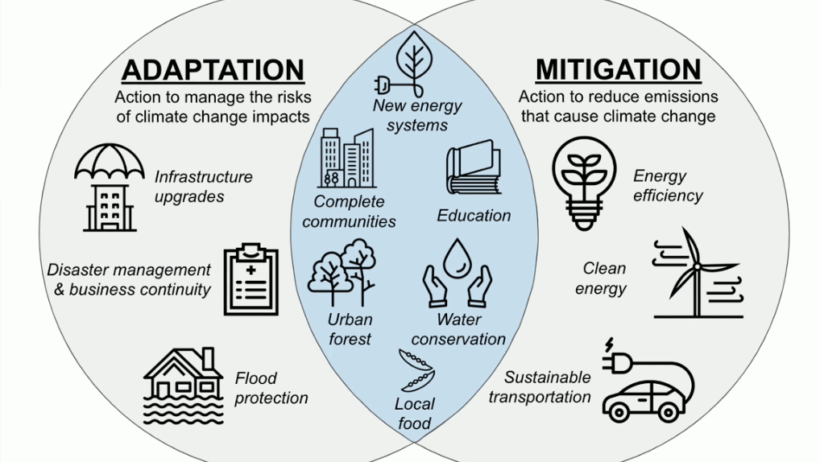Climate change has become an undeniable reality, impacting ecosystems, weather patterns, and human health. Taking actionable steps to mitigate climate change is not just an individual responsibility but a necessity for the survival of our planet. This article elucidates the various strategies you can incorporate into your daily routine to combat climate change effectively.
Understanding the importance of these steps can empower you to make informed decisions that contribute to a more sustainable future. Every small action can create a ripple effect, influencing wider societal change.
Here’s how you can make a difference, one choice at a time.
Adopting an Eco-Conscious Lifestyle
To effectively combat climate change, one must embrace an eco-conscious lifestyle. This begins with being mindful of personal consumption patterns. Here are several ways to foster a more sustainable living environment.
Reducing Energy Consumption
One of the primary contributors to climate change is excessive energy use. Make a concerted effort to conserve energy in your home. Here are actionable steps:
- Switch to Energy-Efficient Appliances: Look for appliances that have the ENERGY STAR label, which indicates the unit uses less energy compared to standard models.
- Utilize Smart Home Technology: Smart thermostats can significantly reduce energy use by optimizing heating and cooling patterns according to your daily schedule.
- Embrace Renewable Energy Sources: If feasible, consider installing solar panels or subscribing to renewable energy programs offered by your utility provider. This can drastically reduce your carbon footprint.
Plant-Based Diet as a Sustainable Choice
Your dietary choices play an integral role in reducing greenhouse gas emissions. A shift towards a plant-based diet can have profound implications for the environment.
- Reduce Meat and Dairy Consumption: The livestock sector contributes significantly to greenhouse gas emissions. By substituting meat with plant-based alternatives, you can combat climate change.
- Support Local and Organic Agriculture: By choosing local produce, you minimize transportation emissions and support sustainable farming practices.
- Minimize Food Waste: Be cognizant of the food you purchase. Implement meal planning and composting to reduce waste, which is particularly important as food waste generates methane in landfills.
Sustainable Transportation Choices
Your choice of transportation can significantly impact your carbon footprint.
- Opt for Public Transportation: Utilizing buses, subways, or trains reduces the number of individual vehicles on the road, leading to lower emissions.
- Carpooling and Ride-Sharing: Sharing your commute with others can drastically reduce the number of vehicles on the road.
- Walking and Biking: Whenever feasible, opt for biking or walking. Not only is it good for your health, but it also contributes to cleaner air.
Advocating for Environmental Policies
Change cannot solely occur at the individual level. Community and governmental action is essential for sustainable progress. Therefore, it is crucial to become an advocate for environmental policies.
Get Involved with Local Environmental Organizations
Joining forces with like-minded individuals can amplify your voice. Local environmental organizations often work on initiatives that aim to reduce climate change. Engage in various activities:
- Participate in Clean-Up Drives: Regular community clean-ups can help beautify neighborhoods while promoting environmental consciousness.
- Campaign for Policy Change: Engaging in advocacy can encourage your local government to implement sustainable practices, such as increased recycling programs or renewable energy initiatives.
Educate and Inspire Others
Sharing knowledge about climate change and sustainable practices is essential in fostering a culture of environmental stewardship. By educating peers, family, and friends, you are contributing to a larger movement.
Utilizing Social Media for Advocacy
Social media platforms can serve as powerful tools for raising awareness about climate change and promoting sustainability. Share informative articles, personal experiences, and actionable tips to inspire others to adopt eco-friendly practices.
Commitment to Continuous Learning
The realm of environmental science is ever-evolving. Stay informed about the latest research, innovative technologies, and successful sustainability projects. Knowledge equips you to make refined, impactful decisions.
The Science of Climate Change
Understanding the scientific principles behind climate change enhances your ability to communicate its urgency to others. Familiarize yourself with concepts such as the greenhouse effect, carbon footprint, and climate resilience to engage in meaningful discussions.
Engaging in Personal Accountability
Lastly, personal accountability stands as a pillar in the fight against climate change. Assess your contribution to environmental degradation and strive for continuous improvement.
- Track Your Carbon Footprint: Various online tools allow you to measure your carbon output. Understanding this can guide you in making significant lifestyle changes.
- Set Personal Goals: Whether it’s reducing single-use plastics or conserving water, establishing tangible goals can motivate you to remain committed to sustainability.
In conclusion, addressing climate change requires a multifaceted approach that includes individual action, community engagement, and advocacy for systemic change. By adopting a mindful lifestyle, enhancing transportation methods, and promoting environmental policies, you can be a catalyst for change. Every effort counts in fostering a sustainable future, and by putting these practices into action, we take vital steps toward mitigating the effects of climate change. Remember, a united front against climate change can set the course for a healthier planet for generations to come.







